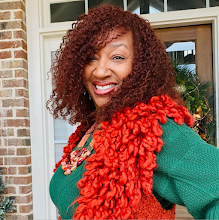By Earl Ofari Hutchinson, BlackNews.com Columnist
CONTACT:
Earl Hutchinson
323-296-6331
hutchinsonreport@aol.com
November 16, 2005—Death penalty opponents were overjoyed at the U.S. Supreme Court's decision last March to join nearly every other nation on the globe and ban teen executions. But that joy should be tempered by yet another appalling fact about America's criminal justice system. The U.S. locks up more juveniles for life without parole than all nations combined. Human Rights Watch and Amnesty International count more than 2,000 inmates currently serving life sentences without the possibility of parole in U.S. jails. And, as is the case with the death penalty, the no-parole sentences are not race neutral.
Black teens are ten times more likely to receive a no-parole life sentence than white youths. They are even more likely to get those sentences when their victims are white, and they are tried by all-white or majority white juries, and those same juries seldom considered their age as a mitigating factor. Also, a significant number of those sentenced to no-parole sentences did not actually commit murder but were participants in a robbery or were at the scene of the crime when the death occurred. The majority of the teens slapped with the draconian sentence had no prior convictions, and a substantial number were aged 15 or under.
The harsh sentence and the racial disparity is so glaring that former Congressman Ron Dellums and the National Bar Association, an African-American legal group, have demanded that courts, and DAs drastically reform their policy of treating teen offenders as adults when asking for and imposing no parole life sentences. Their plea so far has fallen on deaf ears.
Judges, and juries say that violence is violence no matter the age of the perpetrator, and that punishment must be severe to deter crime. Prosecutors and courts in the 42 states that convict and impose no-parole life sentences on juvenile offenders, with Pennsylvania, Louisiana, Michigan, and Florida, leading the pack, have repeatedly rejected challenges that teen no-parole sentences are a violation of the constitutional prohibition against cruel and unusual punishment. Though murder rates have plunged to near record lows, the public is still scared of violent crime, and that especially includes fear of young persons that commit violence. Lawmakers are loath to do anything that make them appear soft on crime. That is still considered the kiss of death for political careers.
Yet, most experts agree that children don't have the same maturity, judgment, or emotional development as adults. In a report on juveniles and the death penalty, Amnesty International found that a number of child offenders sentenced to death suffered severe physical or sexual abuse. Many others were alcohol or drug impaired, or suffered from acute mental illness or brain damage. Nearly all were below average intelligence.
Despite Hollywood sensationalism and media-driven myths about rampaging youth, and the oft-cited example of Florida youth Lionel Tate, who committed murder, and got a relatively lenient sentence only to be accused of committing another crime, most experts insist that children are not natural-born predators. If given proper treatment, counseling, skills training, and education, most can be turned into productive adults.
The irony is that the Supreme Court's ban on executing those who kill as teens may actually work against no-parole reform efforts. The thinking is that since states no longer can execute juvenile offenders, than it's far more humane to sentence them to life sentences. Victims rights advocacy groups claim that taking away the option of no parole sentences for juveniles will weaken crime deterrent. This makes it even tougher to make the case that counseling treatment, and education is the more effective way to redeem young people who commit than harsh sentencing, but it is.
Then there's the question of race. The racial gap between black and white juvenile offenders is vast and troubling. The rush to toss the key on black juveniles has had terrible consequences in black communities. It has increased poverty, fractured families, and further criminalized a generation of young black men.
Those who commit crimes, especially murder, no matter what age they are must be punished, but the punishment should not only fit the crime, it should also fit the age of the person that committed it, and the circumstances that drove them to commit their offenses. If a juvenile offender with the right help can turn their life around, they deserve that chance, and judges should be able to give it to them. The Supreme Court majority that voted to ban juvenile executions called teen executions shameful. They recognized that the practice cannot, nor should not, be justified on moral or legal grounds, and that it was past time to put a stop to them. The same can be said about teen no-parole life sentences.
Earl Ofari Hutchinson is a columnist for BlackNews.com, an author and political analyst.
For media interviews, contact:
Mr. Hutchinson at 323-296-6331 or hutchinsonreport@aol.com
Saturday, November 19, 2005
Subscribe to:
Post Comments (Atom)




No comments:
Post a Comment